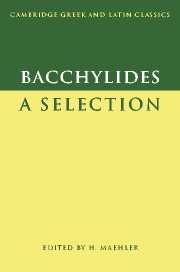Introduction
Published online by Cambridge University Press: 05 June 2012
Summary
CHORAL LYRIC POETRY AND ITS PUBLIC
‘Greek poetry differed profoundly from modern poetry in content, form, and methods of presentation. An essentially practical art, it was closely linked to the realities of social and political life, and to the actual behaviour of individuals within a community. It rendered the poet's own experience as well as that of others, but was not private poetry in the modern sense. It drew regularly for its themes on myth, which was at once the sole subject matter of narrative and dramatic poetry and a constant point of paradigmatic reference in lyric.’ In the Greek world from the second millennium to the fourth century bce, poetry was characterized by two essential features: it was sung, and it was transmitted orally. Poetry was sung from memory, not from written texts, and listened to, not read. Although systems of writing existed, they were not essential to the performance or to the reception of song; what role, if any, writing played in the composition of poetry in Homer's time and in the subsequent three centuries, we cannot tell; it was, of course, vital for the preservation of the texts, without the music. The oral character of Greek poetry down to the ‘classical’ age is a fundamental feature of Greek culture.
To Homer, all poetry is ‘song’ (ἀοιδή or μολπή).
- Type
- Chapter
- Information
- BacchylidesA Selection, pp. 1 - 32Publisher: Cambridge University PressPrint publication year: 2004



